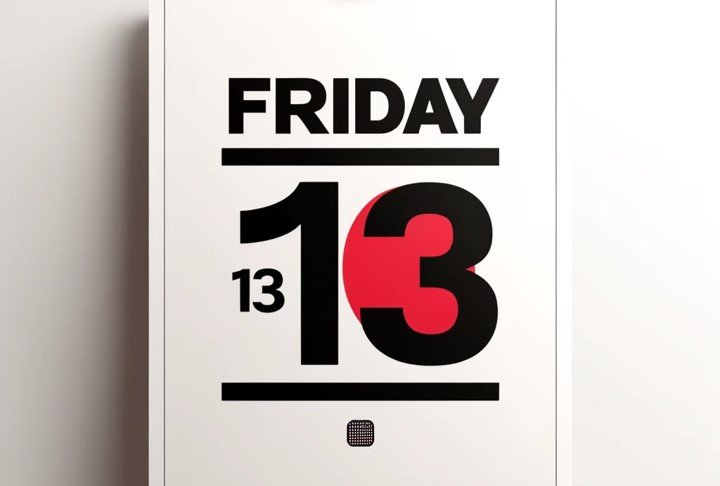Friday the 13th: A Day Steeped in Mystery and Superstition
Friday the 13th has long been regarded as an unlucky day in Western cultures. Occurring at least once every year, this peculiar date arises when the 13th day of a month falls on a Friday. It’s a phenomenon that intrigues calendar enthusiasts and has sparked countless tales of misfortune.
Interestingly, some years see multiple occurrences of Friday the 13th. For instance, 2015 had three such dates—in February, March, and November—a pattern that will repeat in 2026. Similarly, leap years starting on a Sunday, such as 2012 and 2040, will also experience three Friday the 13ths. The year 2024 features two occurrences: September 13 and December 13.
This day follows a unique rule in the Gregorian calendar: whenever the 1st of a month begins on a Sunday, it guarantees a Friday the 13th, adding to its allure as a calendar anomaly.
Tracing the Roots of the Superstition
The origins of Friday the 13th’s infamy lie in a blend of mythologies, religious traditions, and historical events. Both Fridays and the number 13 have individually been regarded as unlucky for centuries.
In Norse mythology, the tale of Loki as the 13th guest at a Valhalla feast is one of the earliest instances linking the number to misfortune. According to legend, Loki’s arrival led to chaos and tragedy, cementing the association of 13 with bad luck.
In Christian tradition, the number 13 is tied to the Last Supper, where Judas Iscariot, the 13th guest, betrayed Jesus, who was crucified the following day—Friday. Other Biblical events, including Adam and Eve’s fall, Abel’s murder by Cain, and the Great Flood of Noah’s Ark, are also traditionally believed to have occurred on Fridays.
A 19th-Century Popularization
Friday the 13th began to solidify its reputation as an unlucky day during the 19th century. Thomas W. Lawson’s 1907 novel, Friday, the Thirteenth, further entrenched the superstition by weaving it into a tale of stock market manipulation and financial ruin.
The 20th century saw Hollywood capitalize on the superstition with the Friday the 13th film franchise, which introduced a cultural association with horror and bad luck. Dan Brown’s novel The Da Vinci Code added another layer to the day’s notoriety by referencing the mass arrest of the Knights Templar on Friday, October 13, 1307.
Modern Interpretations and Intrigue
Despite its ominous reputation, Friday the 13th remains a fascinating cultural phenomenon. For some, it’s a day of superstition and caution, while for others, it’s a lighthearted nod to age-old myths. The continued interest in this date reflects humanity’s enduring curiosity about the interplay between history, folklore, and cultural beliefs.
Fact, Fiction, and Folklore
Whether seen as an unlucky day or merely a quirky calendar event, Friday the 13th owes its reputation to centuries of storytelling and cultural evolution. Rooted in Norse mythology, Biblical traditions, and historical events, this date continues to capture imaginations and spark discussions about the power of superstition in our lives.
See Also:
Pushpa 2 Creates Box Office History
Ousted Syrian President Assad Granted Asylum in Russia
Bank Manager Assaulted Over Fixed Deposit Tax Deduction
Delhi Influencer’s Bizarre Green Chilli Lip Plumping Hack
——————————————————————————-
It would mean the world to us if you follow us on Twitter, Instagram and Facebook. At Newscazt, we strive to bring you the latest news and stories from India, World, Business, Sports, Entertainment and more. Our team of experienced journalists and writers are committed to delivering accurate and unbiased news and analysis.




